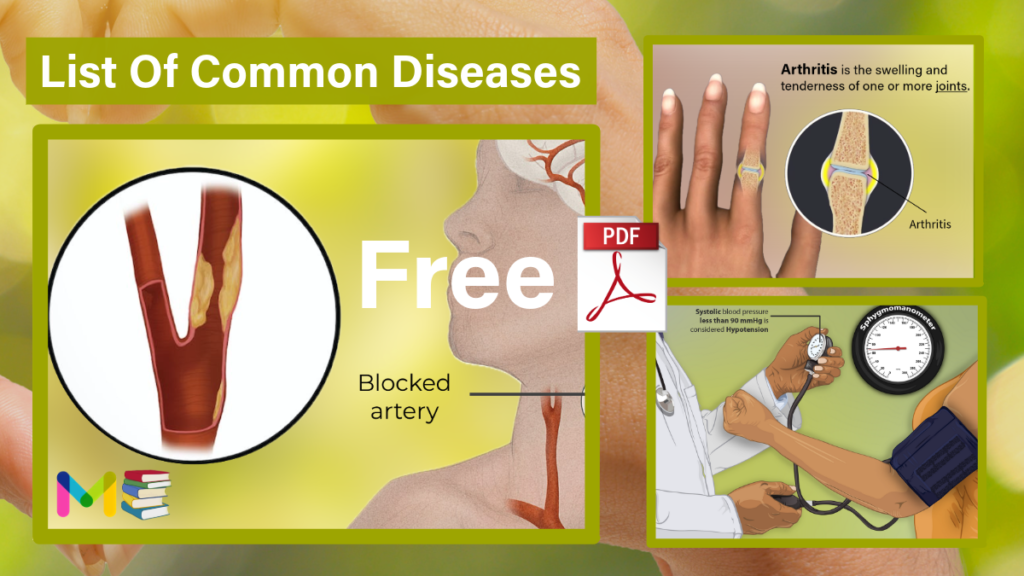This page includes the most updated common and popular diseases/medical conditions in the world, with their types, causes, symptoms, risk factors, complications, diagnosis, and treatments. This page is updated daily.
Link to All Diseases causes short notes
Link to All Diseases Diagnosis Short Notes
Link to All Diseases Treatment Short Notes
Breast Cancer
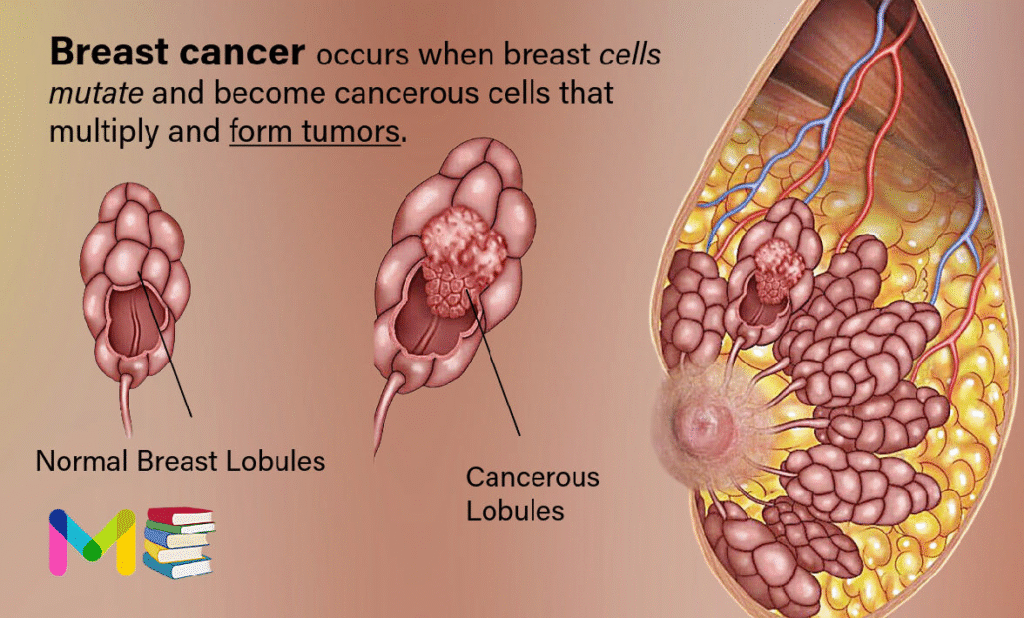
Breast cancer occurs when breast cells mutate and become cancerous cells that multiply and form tumors. Typically, the cancer forms in either the lobules or the ducts of the breast. Types, Stages, Causes, Risk factors, Diagnosis & Treatment
Bladder Cancer
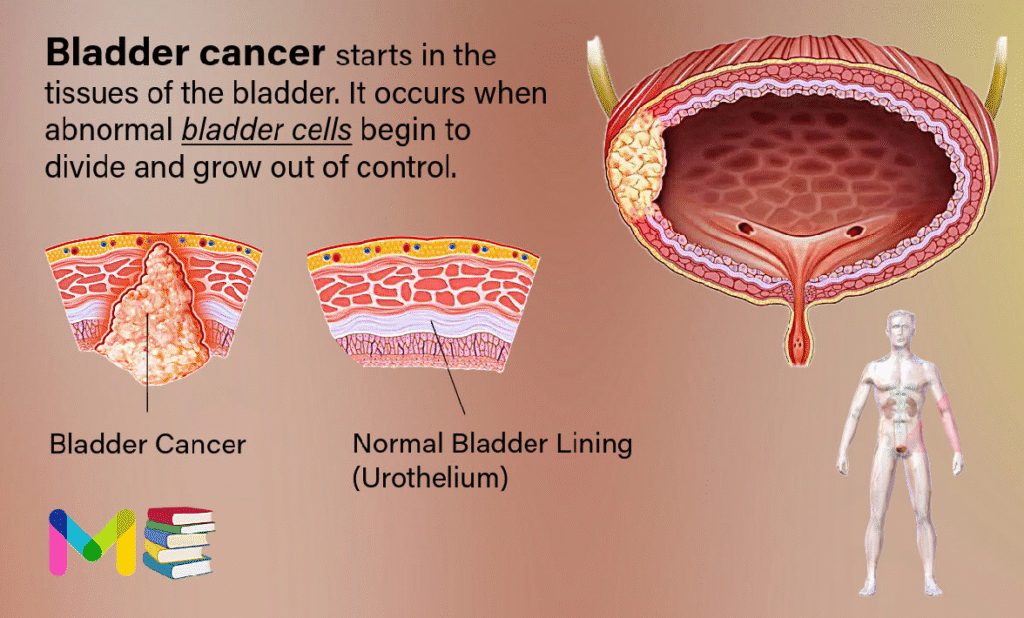
Bladder cancer starts in the tissues of the bladder. It occurs when abnormal bladder cells begin to divide and grow out of control. They may form a tumor and, with time, spread to surrounding muscles and organs. Types, Causes, Symptoms, Diagnosis, and Treatment
Colorectal Cancer
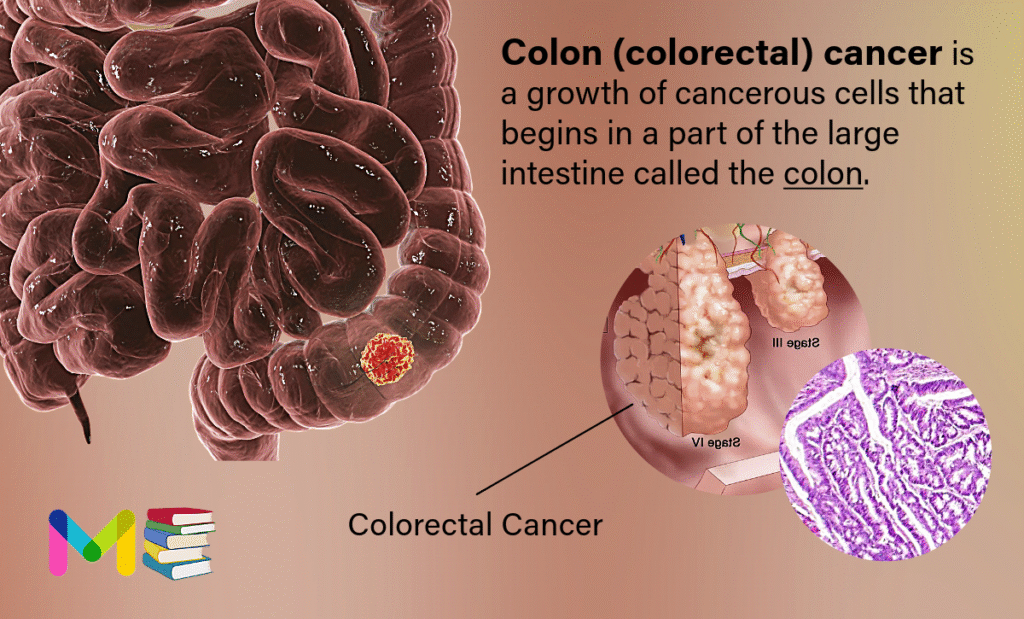
Colon (colorectal) cancer is a growth of cancerous cells that begins in a part of the large intestine called the colon. It’s often referred to as colorectal cancer. Types, Causes, Symptoms, Diagnosis, and Treatment
Prostate Cancer
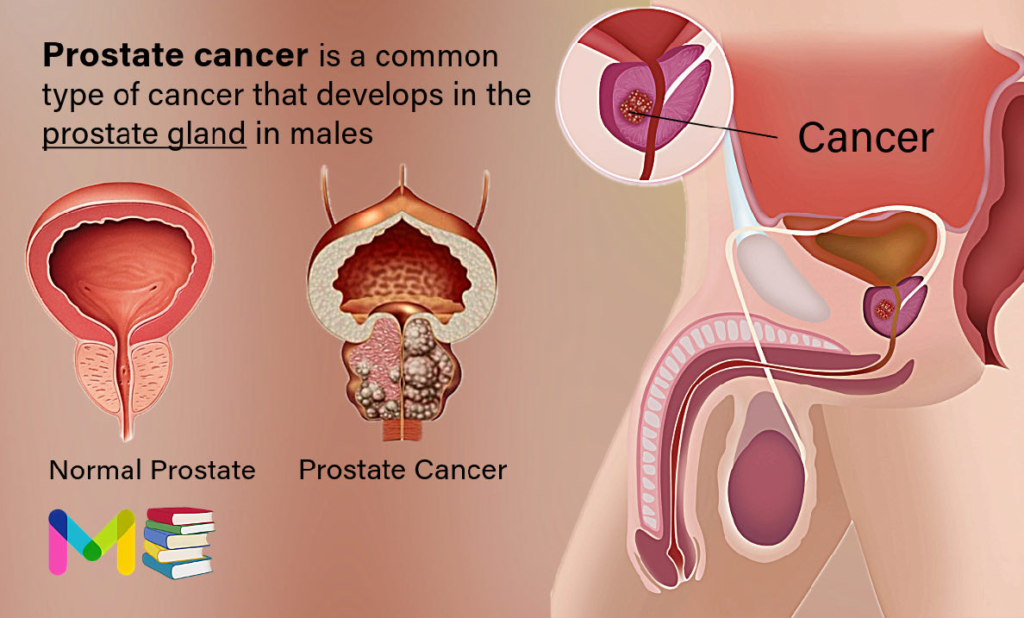
Prostate cancer is a common type of cancer that develops in the prostate gland in males. The prostate is a small walnut-shaped gland located below the bladder and in front of the rectum in males. Types, Causes, Symptoms, Diagnosis and Treatment
Tonsillitis
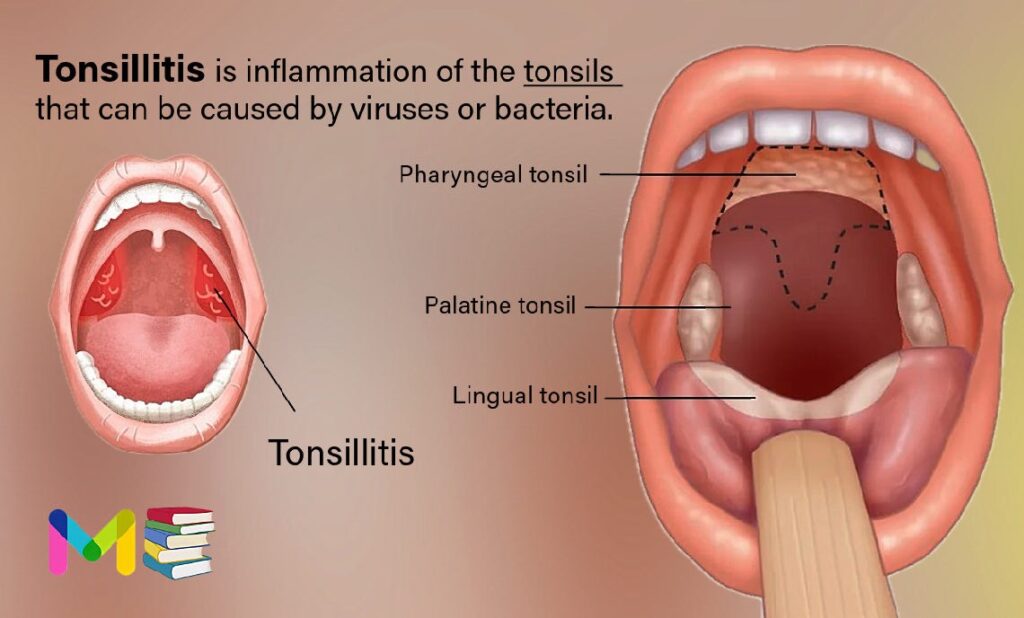
Tonsillitis is an inflammation of the palatine tonsils, two masses of lymphoid tissue located at the back of the throat. This condition can be caused by either viral or bacterial infections. Types, Causes, Symptoms and Treatment
Leukemia
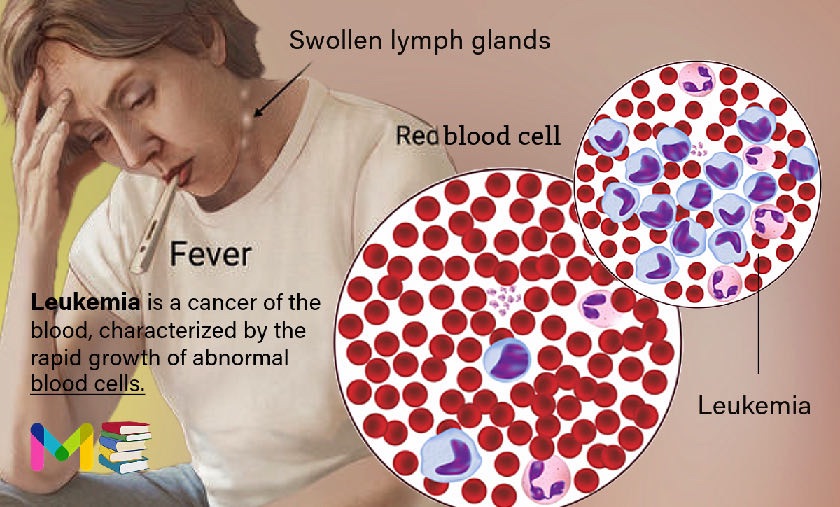
Leukemia is a cancer of the blood, characterized by the rapid growth of abnormal white blood cells. Leukemia starts when the DNA of a single cell in your bone marrow changes (mutates) and can’t develop and function normally. Types, Causes, Symptoms, and Treatments
Pelvic Inflammatory Disease (PID)
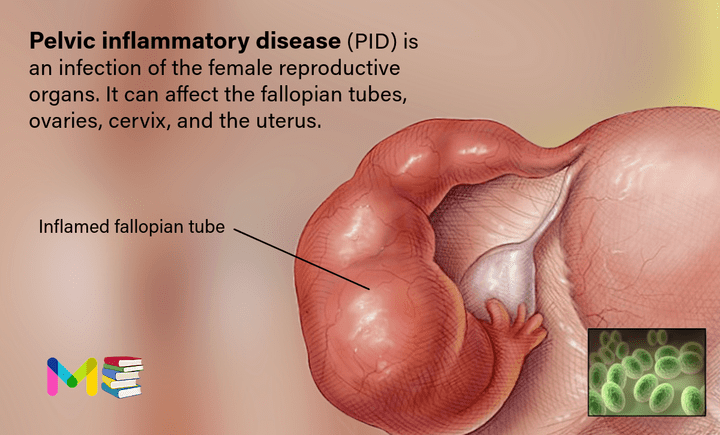
Pelvic inflammatory disease (PID) is an infection of the female reproductive organs. It can affect the fallopian tubes, ovaries, cervix, and uterus. Causes, Symptoms and Treatment
Dementia
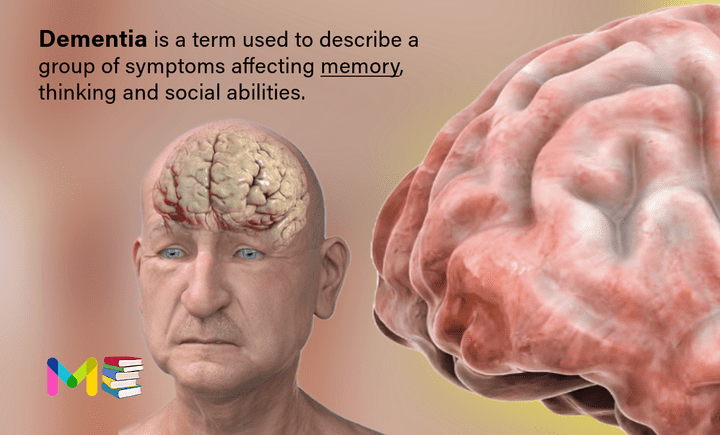
Dementia is a general term used to describe a group of many neurodegenerative diseases, characterized by a general decline in cognitive abilities that affects a person’s ability to perform everyday activities. Causes, Symptoms and Treatment
Goiter
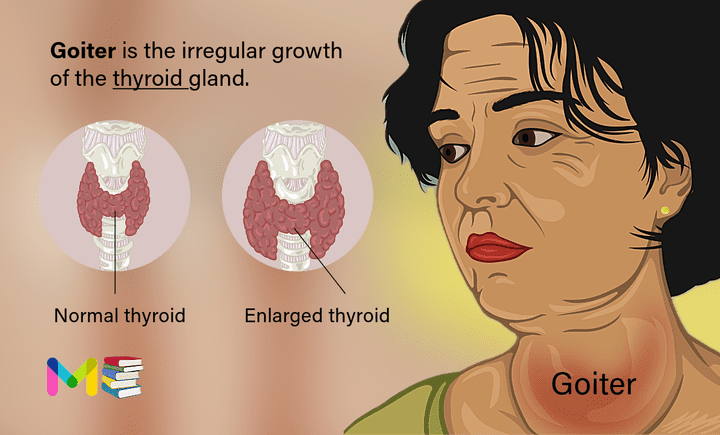
A goiter is the irregular growth of the thyroid gland. Your entire thyroid can grow larger or it can develop one or more small lumps called thyroid nodules. Causes, Symptoms and Treatment
Stroke
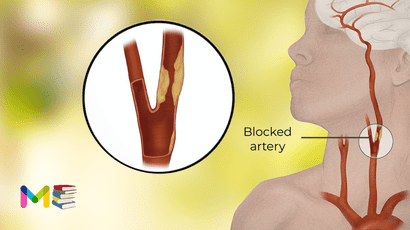
A stroke is a life-threatening condition that happens when part of your brain doesn’t have enough blood flow. This commonly happens because of a blocked artery or bleeding in your brain. Without a steady supply of blood, the brain cells in that area start to die from a lack of oxygen. Causes, Symptoms and Treatment
Diabetes

Diabetes is a condition that occur when your glucose level (blood sugar) is too high. It develops when your pancreas doesn’t make enough insulin or any at all, or when your body isn’t responding to the effects of insulin properly. Causes, Symptoms and Treatment
Hypertension
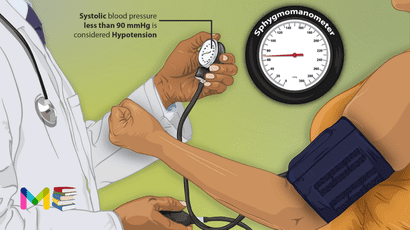
High blood pressure (also known as hypertension) occur when the force of blood pushing against your artery walls is consistently too high. This damages your arteries over time and can lead to serious complications like heart attack and stroke. Causes, Symptoms and Treatment
Preeclampsia
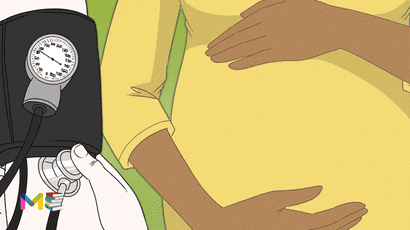
Preeclampsia is a pregnancy complication that occur as a serious blood pressure condition that develops during pregnancy. People with preeclampsia often have high blood pressure (hypertension) and high levels of protein in their urine (proteinuria). Causes, Symptoms and Treatment
Heart failure
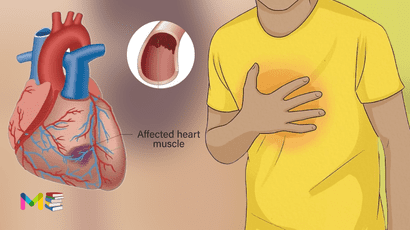
Heart failure also known as congestive heart failure, is a long-term condition in which your heart can’t pump blood well enough to meet your body’s needs. Causes, Symptoms and Treatment
Heart attack
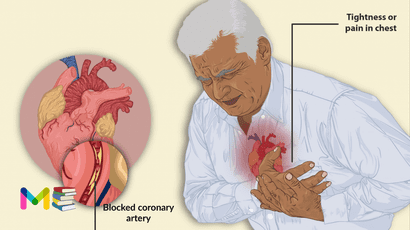
Heart attack (myocardial infarction) is a very dangerous condition that occur because of a lack of blood flow to your heart muscle. The lack of blood flow can occur because of many different factors but is usually related to a blockage in one or more of your heart’s arteries. Causes, Symptoms and Treatment
Myocarditis
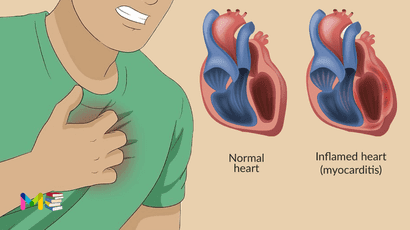
Myocarditis is an inflammation of the heart muscle (myocardium). This can weaken your heart muscle, making it more difficult for your heart to pump. This rare condition can affect people quickly or slowly over time. Causes, symptoms and treatment
Heart murmurs
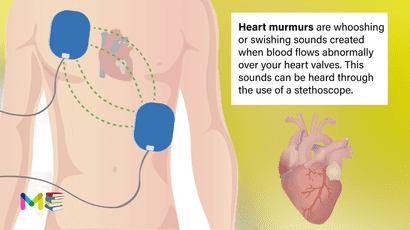
Heart murmurs are whooshing or swishing sounds created when blood flows abnormally over your heart valves. This sounds can be heard through the use of a stethoscope. Causes, Symptoms and Treatment
Atrial fibrillation
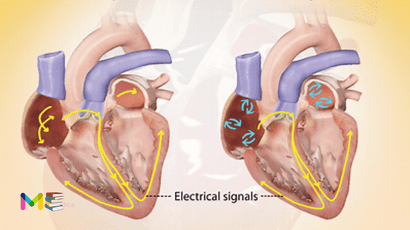
Atrial fibrillation (AFib) is an irregular and often very rapid heart rhythm. It can lead to blood clots in the heart. This condition also increases the risk of stroke, heart failure and other heart-related complications. It is one of the most common arrhythmias. Causes, Symptoms and Treatment.
High cholesterol
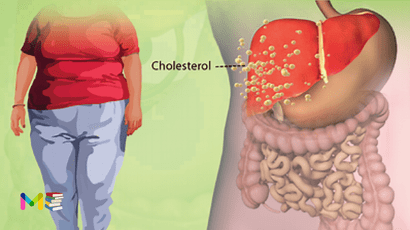
High cholesterol is a condition in which you have too many lipids (fats) in your blood. Also known as hyperlipidemia. This can cause fatty deposits in your blood vessels. Gradually, these deposits grow, making it difficult for enough blood circulation to flow through your arteries. These deposits can break suddenly and form a clot that causes a heart attack or stroke. Causes, Symptoms and Treatment
Kidney stones
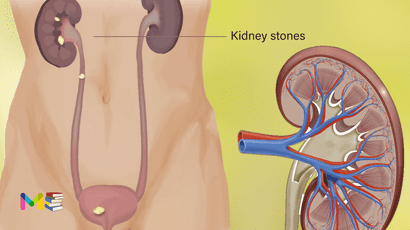
Kidney stones (also called renal calculi, nephrolithiasis or urolithiasis) are hard deposits made of minerals and salts that form inside your kidneys. Causes, Symptoms and Treatment
Arthritis
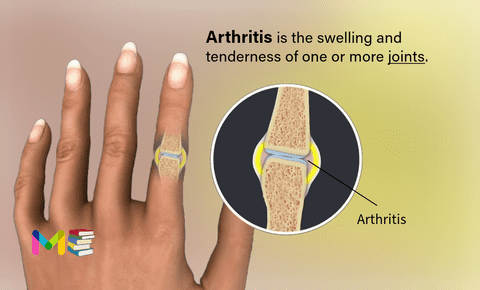
Arthritis is the swelling (inflammation) and tenderness of one or more joints in your body. Joints are places in your body where two bones meet. Causes, Symptoms and Treatment
Alzheimer’s disease
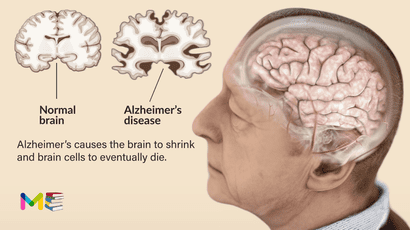
Alzheimer’s disease is a disorder of the brain that gets worse over time. It is a condition characterized by changes in the brain that lead to deposits or buildup of certain proteins. Alzheimer’s causes the brain to shrink and brain cells to eventually die. When this happens, it causes a gradual decline in memory, thinking, behavior and social skills. It’s the most common cause of dementia and usually affects people above the age of 65. Causes, Symptoms and Treatment
Meningitis
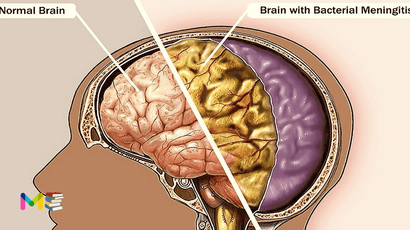
Meningitis is the infection and inflammation of the fluid and membranes (meninges) surrounding the brain and spinal cord. Bacteria, viruses, fungi, parasites and non- infectious conditions are the causes of meningitis. Causes, symptoms and treatment
Migraine headaches
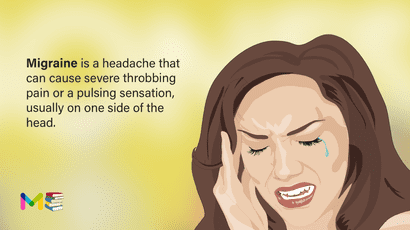
Migraine headache (neurological disease) is a headache that can cause severe throbbing pain or a pulsing sensation, usually on one side of the head. It’s often accompanied by nausea, vomiting, and extreme sensitivity to light and sound. Causes, symptoms and treatment
Paralysis
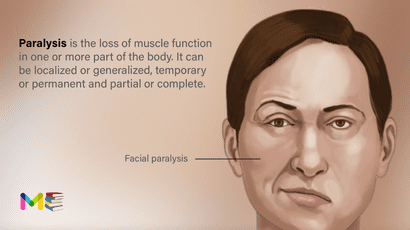
Paralysis is the loss of muscle function in one or more part of the body. It can be localized or generalized, temporary or permanent and partial or complete. It can affect any part of your body at any time in your lifetime. Causes, symptoms and treatment
Syncope (fainting)
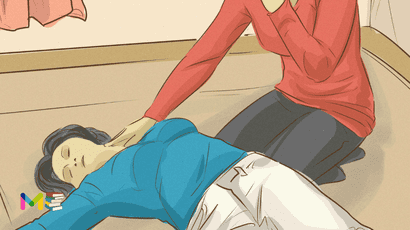
Syncope is a term used for fainting or passing out. It is a medical condition that happens when you have a sudden, temporary drop in the amount of blood that flows to your brain. Most of the time, a harmless, short-term cause makes you faint. Causes, symptoms and treatment
Lung cancer
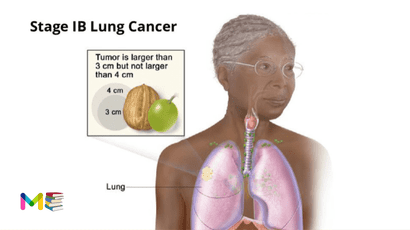
Lung cancer is the name giving to cancers that start in your lungs usually in the airways (bronchi or bronchioles) or small air sacs (alveoli). Cancers that start in other places and move to your lungs are usually named for where they start (your healthcare provider may refer to this as cancer that’s metastatic to your lungs). Causes, symptoms and treatment
Tuberculosis
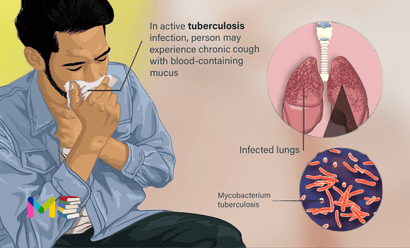
Tuberculosis (TB) is a disease caused by bacteria known as Mycobacterium tuberculosis. This can cause infection in your lungs or other tissues. It commonly affects your lungs, but it can also affect other organs like your spine, brain or kidneys. The word “tuberculosis” comes from a Latin word for “nodule” or something that sticks out. Causes, symptoms and treatment
Chronic cough
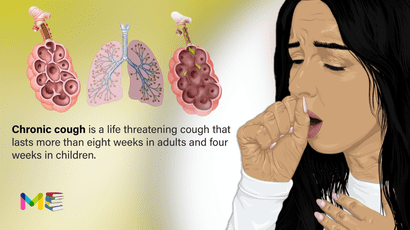
Chronic cough is a life threatening cough that lasts more than eight weeks in adults and four weeks in children. A chronic cough can interrupt your sleep and leave you feeling exhausted. Severe cases of chronic cough can cause vomiting, lightheadedness and even rib fractures. The treatment depends on the underlying causes. Causes, symptoms and treatment
Asthma
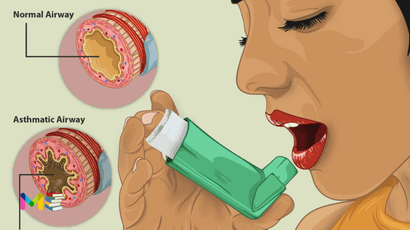
Asthma is a disease that affects your lungs. It’s a chronic (ongoing) condition, meaning it doesn’t go away and needs ongoing medical management. Causes, symptoms and treatment
COPD (Chronic Obstructive Pulmonary Disease
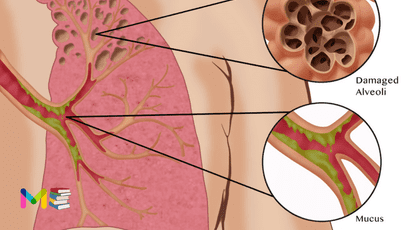
Chronic obstructive pulmonary disease (COPD) is a chronic inflammatory lung disease that causes obstructed airflow from the lungs. It is a group of diseases that includes chronic bronchitis and emphysema. Over time, COPD makes it harder to breathe. You can’t reverse lung damage, but lifestyle changes and medication changes can help you manage the symptoms. Causes, symptoms and treatment
Pneumonia
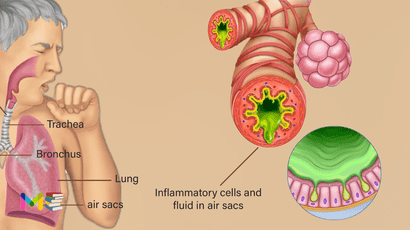
Pneumonia is an infection of the lungs, which is caused by bacteria, viruses or fungi. It causes the lung tissue to swell (inflammation) and can cause fluid or pus in the lungs. Bacterial pneumonia is usually more severe than viral one, which often resolves on its own. Causes, symptoms and treatment
Sinusitis
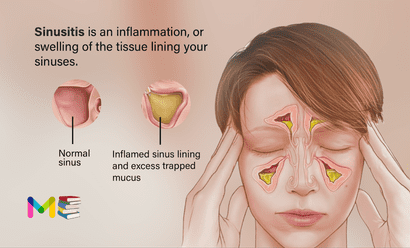
Sinusitis is an inflammation, or swelling of the tissue lining your sinuses (spaces in your forehead, cheeks and nose usually filled with air). It causes facial pain, a stuffy or runny nose, and sometimes a fever and other symptoms. It’s usually caused by the common cold, but other viruses, bacteria, fungi and allergies can also cause sinusitis. Causes, symptoms and treatment
Sleep apnea
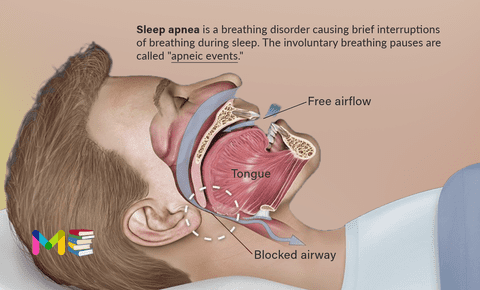
Sleep apnea is a breathing disorder causing brief interruptions of breathing during sleep. The involuntary breathing pauses are called apneic events. This happens either because of blockage of your airway (obstructive sleep apnea) or because your brain doesn’t correctly control your breathing (central apnea). Causes, Symptoms and Treatment
Appendicitis
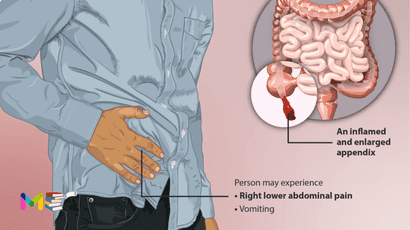
Appendicitis is the inflammation of the appendix. It can cause acute (sudden and intense) or chronic pain in your lower abdomen. As inflammation worsens, the pain typically increases and eventually becomes severe. Causes, symptoms and treatment
Liver cirrhosis
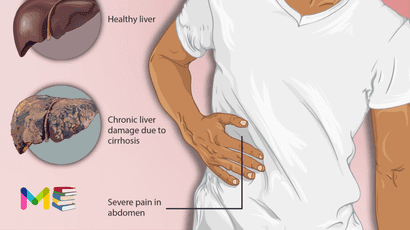
Liver cirrhosis is the late stage of liver disease, in which healthy liver tissue has been gradually replaced with scar tissue. This is a result of many forms of liver diseases and conditions, such as hepatitis or chronic alcoholism. Causes, symptoms and treatment
Sciatica (nerve pain)
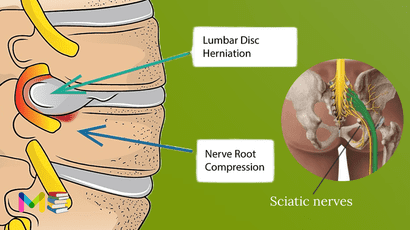
Sciatica is a nerve pain that result from an injury or irritation to your sciatic nerve. In addition to pain, it can involve tingling or numbness in your back or butt that may also radiate down your leg. Causes, symptoms and treatment
Deep vein thrombosis
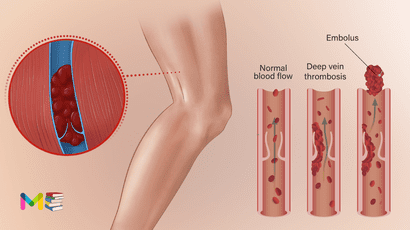
Deep vein thrombosis (also known as venous thrombosis) occurs when a blood clot (thrombus) develops in veins deep in your body because your veins are injured or the blood flowing through them is too sluggish. Causes, symptoms and treatment
Hemophilia
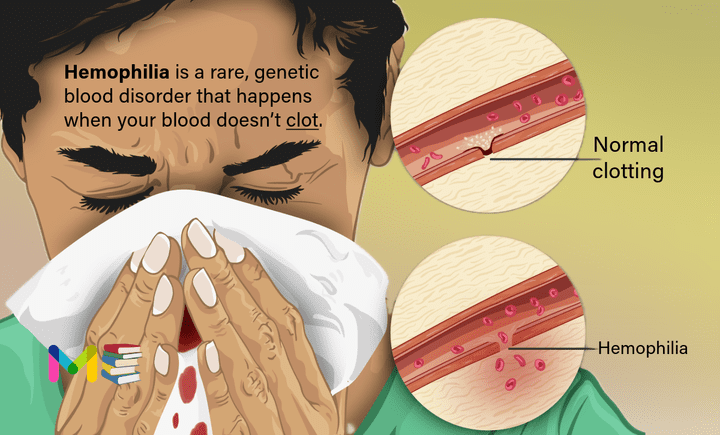
Hemophilia is a rare, genetic blood disorder that happens when your blood doesn’t clot in the typical way and make your bleeding slow down or stop. Causes, symptoms and treatment.
Epistaxis (nosebleeds)
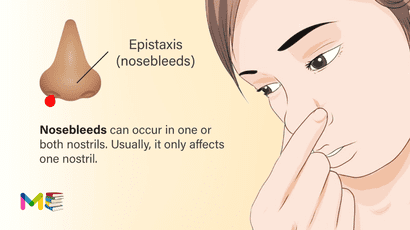
Epistaxis is a medical term used for nosebleeds. Meaning a loss of blood from the tissue that lines the inside of your nose. This can occur in one or both nostrils. Usually, it only affects one nostril. Causes, symptoms and treatment
Eczema
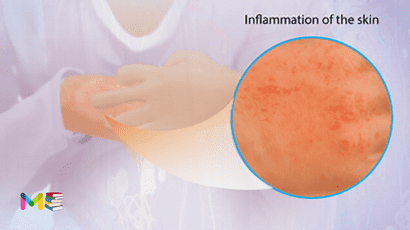
Eczema (atopic dermatitis) is a condition that causes dry, itchy and inflamed skin. Eczema is a type of dermatitis, which is long lasting (chronic) and tends to flare sometimes. It can be irritating but it’s not contagious. It typically starts during infancy or early childhood age and can persist into adulthood. However, it can occur in people of any age. Causes, symptoms and treatment
Japanese encephalitis
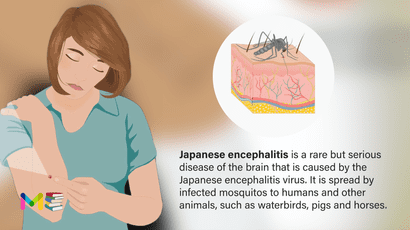
Japanese encephalitis is a rare but serious disease of the brain that is caused by the Japanese encephalitis virus. It is spread by infected mosquitos to humans and other animals, such as waterbirds, pigs and horses. Waterbirds and pigs are important in the Japanese encephalitis virus transmission cycle as they can pass the virus back to biting mosquitoes. Causes, symptoms and treatment
Burning mouth syndrome
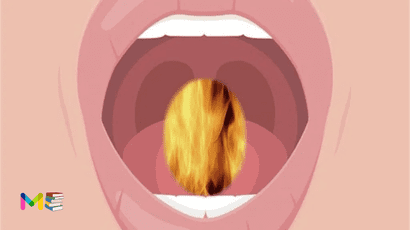
Burning mouth syndrome is a condition referring to an ongoing or recurring burning sensation in the mouth without an obvious cause. It can be chronic, everyday problem, or it may occur periodically. Causes, symptoms and treatment
Gastroenteritis
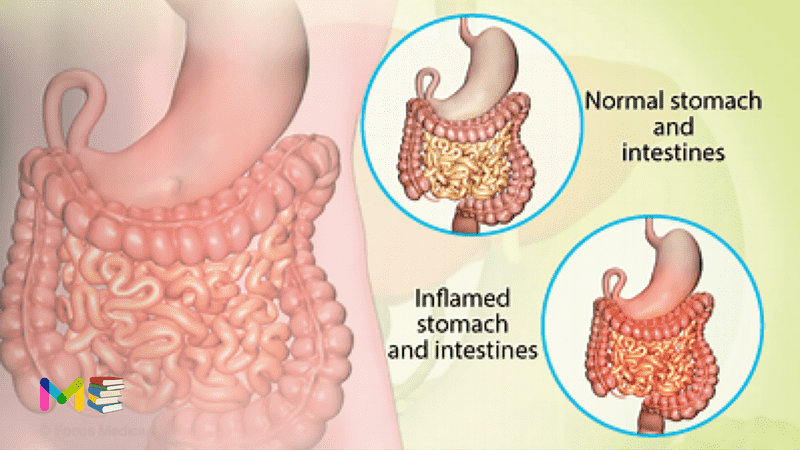
Stomach flu is a viral infectious disease, that affects the stomach and intestines. The medical term is viral gastroenteritis or gastroenteritis. “Gastro” means stomach and “enter” means small intestine. “Itis” means inflammation, which is usually due to an infection. And “viral” means that a virus has caused the infection. Causes, symptoms and treatment
Hydrocephalus
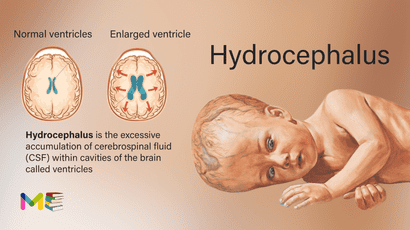
Hydrocephalus is the excessive accumulation of cerebrospinal fluid (CSF) within your brain cavities called ventricles. This excess fluid causes your ventricles to widen, which puts harmful press on the tissues of your brain. Causes, symptoms and treatment
Jaundice in Adults
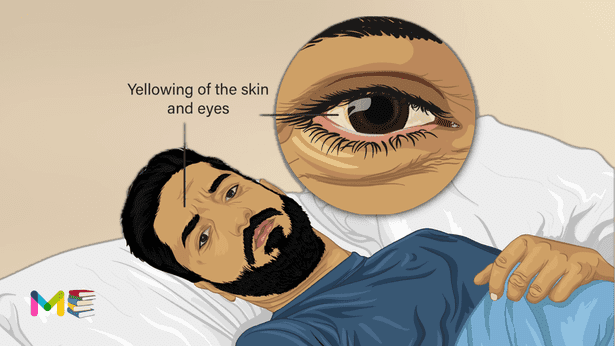
Jaundice in adults is the yellow discolouration of your skin, the whites of your eyes (sclera) and mucous membranes. This yellow color is caused by a high level of bilirubin in the body, a yellow-orange bile pigment. Jaundice in adults has many causes, including hepatitis, gallstones and tumors. Causes, symptoms and treatment
Newborn Jaundice
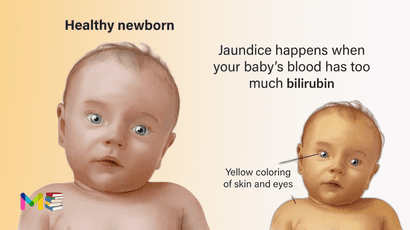
Newborn jaundice is the yellow discoloration of a newborn baby’s skin and eyes. It occurs because the baby’s blood contains an excess amount of bilirubin, a yellow pigment of red blood cells. Newborn jaundice is very common and usually goes away on its own. Sometimes babies need treatment with phototherapy. Causes, symptoms and treatment
Abnormal uterine bleeding
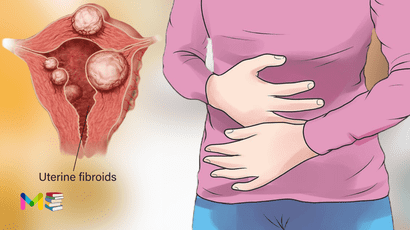
Menometrorrhagia also known as abnormal uterine bleeding is when you bleed between your monthly periods or when your periods are extremely heavy and/or prolonged. Normal menstrual flow typically lasts about five days and occurs every 21 to 35 days. Causes, symptoms and treatment
Endometriosis
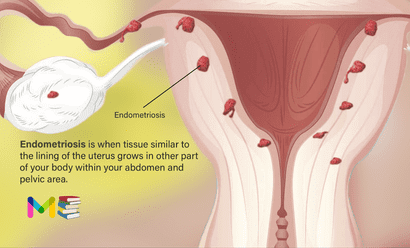
Endometriosis is when tissue similar to the lining of the uterus grows in other parts of your body within your abdomen and pelvic area. It often affects the ovaries, fallopian tubes and the tissue lining the pelvis. Rarely, endometriosis growths may be found beyond the area where pelvic organs are located. This can cause painful and heavy periods, as well as fertility issues. Causes, symptoms and treatment
Uterine fibroids
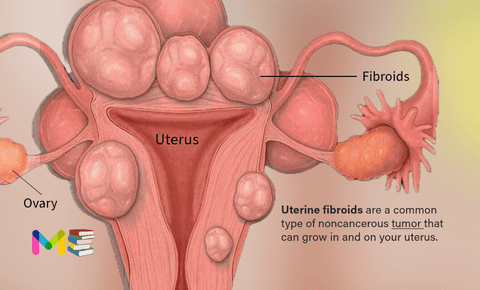
Uterine fibroids (also called leiomyomas) are a common type of noncancerous tumor. They are growths made of smooth muscle cells and fibrous connective tissue. Causes, symptoms and treatment
Adenomyosis
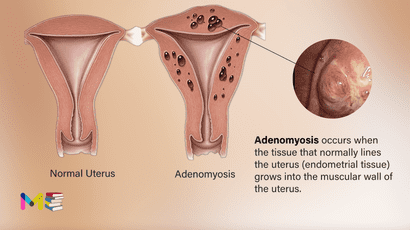
Adenomyosis occurs when the tissue that normally lines the uterus (endometrial tissue) grows into the muscular wall of the uterus. This condition makes the uterine walls thicker and distorts the vasculature (blood vessels), which can lead to heavy, prolonged, and painful periods. Adenomyosis is also associated with pain during sexual intercourse, as well as infertility. Causes, symptoms and treatment
Ectopic pregnancy
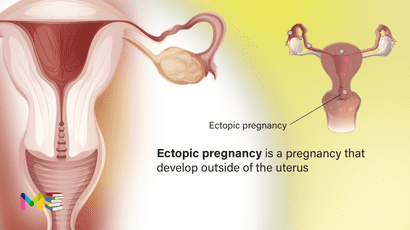
Ectopic pregnancy is a condition whereby a pregnancy develop outside of the uterus. This occurs when a fertilized egg implants in a location that can’t support its growth. Causes, symptoms and treatment
Amniotic fluid deficiency
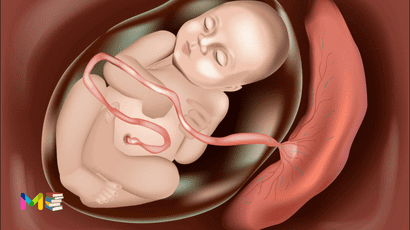
Oligohydramnios is a condition that occur during pregnancy, characterized by the deficiency of amniotic fluid, the fluid that surrounds the fetus in the womb. It can cause pregnancy complications or be a sign of an underlying health condition. Causes, symptoms and treatment
Hyperemesis gravidarum
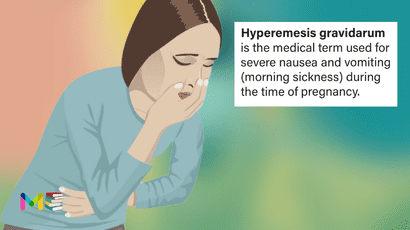
Hyperemesis gravidarum is the medical term used for severe nausea and vomiting (morning sickness) during the time of pregnancy. The symptoms can be very uncomfortable. You might vomit more than three times a day, become dehydrated, feel constantly dizzy and lightheaded and also lose weight. Causes, symptoms and treatment
Polymorphic eruption of pregnancy
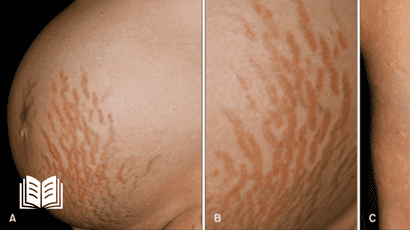
Polymorphic eruption of pregnancy is an itchy, bumpy rash that starts in the stretch marks of the abdomen in the last 3 months of pregnancy then clears with delivery. It is also called PUPPP or Pruritic Urticarial Papules and Plaques of Pregnancy. Causes, symptoms and treatment
Polycystic ovary syndrome
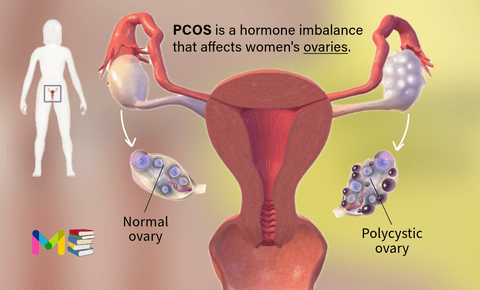
Polycystic ovary syndrome (PCOS) is a hormonal imbalance that occurs when your ovaries (the organ that produces and releases eggs) create excess hormones. It is a problem that occurs during the reproductive years. Causes, symptoms and treatment
Enlarged prostate
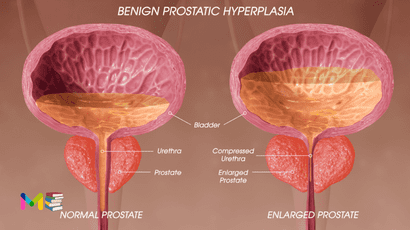
Benign prostatic hyperplasia (enlarged prostate) is a condition in which your prostate grows in size. It is a problem that becomes more common with aging in men. Causes, symptoms and treatment
Urinary incontinence
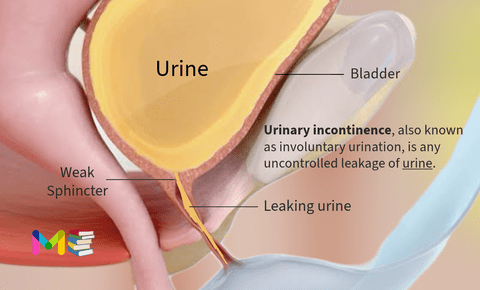
Urinary incontinence (involuntary urination) is any uncontrolled leakage of urine or loss of bladder control. It is a common and often embarrassing problem. The severity ranges from occasionally leaking urine when you cough or sneeze to having an urge to urinate that’s so sudden and strong you don’t get to a toilet in time. Causes, symptoms and treatment
Typhoid fever
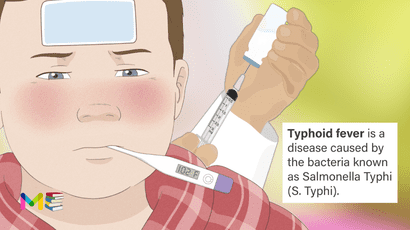
Typhoid fever is a disease caused by the bacteria known as Salmonella Typhi (S. Typhi). The bacteria infects your small intestines and causes high fever, stomach pain and other symptoms. It can also be called enteric fever. Causes, symptoms and treatment
Syphilis
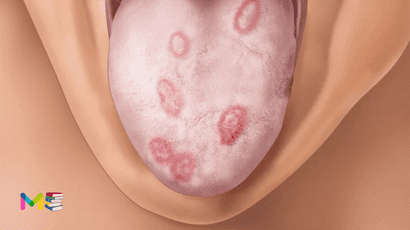
Syphilis is a sexually transmitted infection (STI) caused by a bacteria called Treponema pallidum. It is an infectious disease that spreads when you have vaginal, anal or oral sex with someone who has the infection. Causes, symptoms and treatment
Cholera
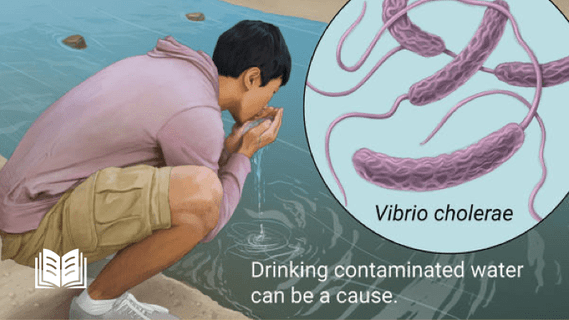
Cholera is sudden illness that occur when a person unknowingly ingests (swallows) Vibrio cholerae (V. cholerae) bacteria. When the bacteria infect a person’s intestines, they can cause very bad diarrhea and dehydration. These complications can also lead to death. Causes, symptoms and treatment
- List of Common Diseases & Medical Disorders
- Buy Complete Premium Anatomy Notes (PDFs)
- Medmichihealthcare New posts
- Read All causes of disease short notes
- Read All diagnosis of disease short notes
- Read All treatment of disease short notes
- Subscribe Medmichihealthcare YouTube channel
